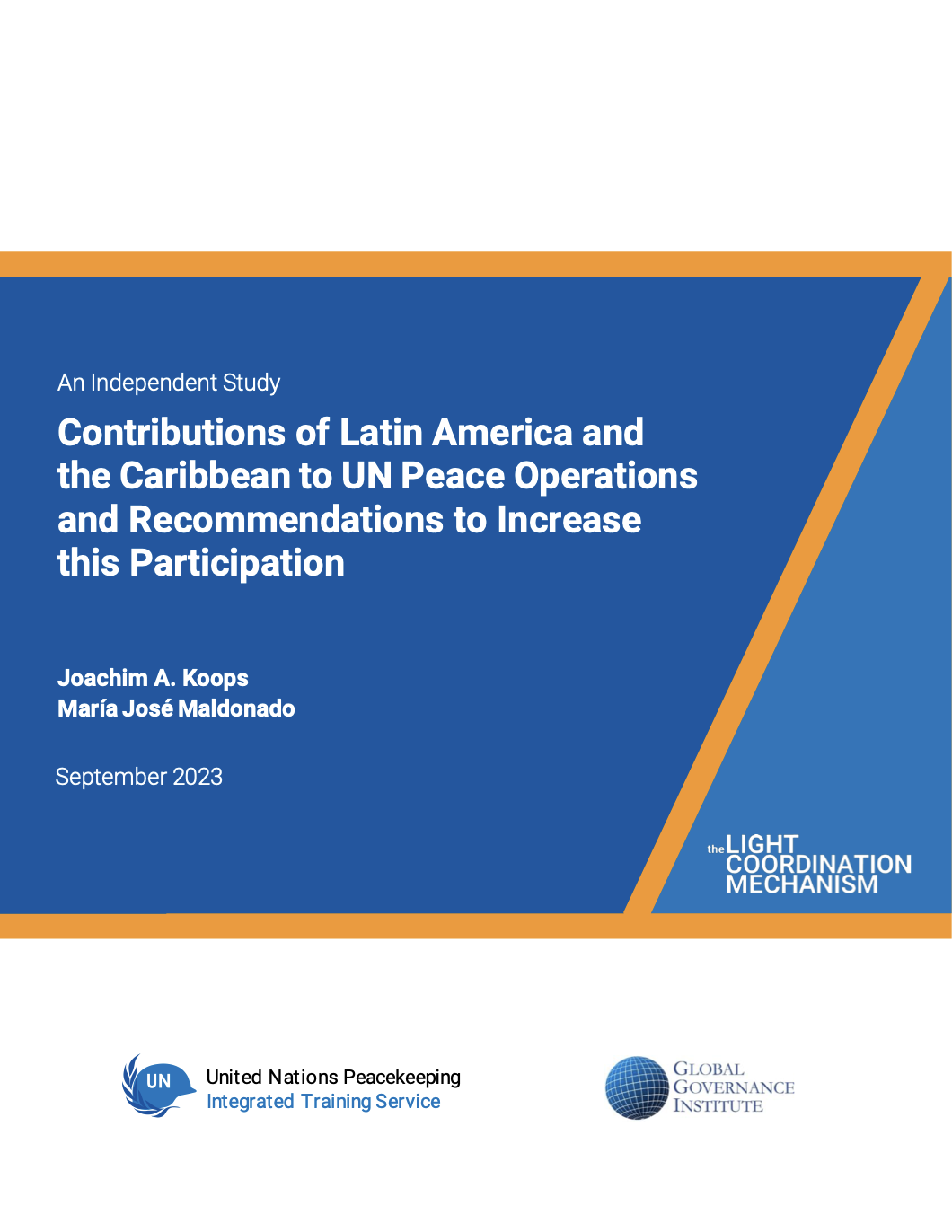The in-depth report, co-authored by Joachim Koops and Maria Maldonado, is part of an advice project requested by the 16 Latin American and Caribbean Countries that are part of the Lima Declaration that established a new regional network for peacekeeping in 2022. The signatory states requested an in-depth study that would analyze the current obstacles that LAC countries face in contributing to UN peace operations and how participation from the region could be increased in the future. The present report offers an independent perspective on the matter. It puts particular emphasis on current, past and future cooperation modalities in the LAC region and the role the RELACOPAZ could play in a complementary fashion to existing cooperation mechanisms in the realm of UN peace operations.
In-depth Study exploring past achievements, challenges and future potentials
This in-depth study has been carried out at the request of and in cooperation with the signatory States of the Declaration of Lima and in coordination with the UN LCM. The objective of the study is to examine the main obstacles LAC countries currently face in contributing to UN peace operations and to suggest recommendations for addressing those challenges. This analysis is placed in the wider context of the evolution of the LAC countries’ past contributions and a discussion of the main strengths and added value to UN peace operations more generally. The study also examines some lessons from past and current cooperation arrangements across the region (at the bilateral and multilateral levels) and explores opportunities and limitations for strengthening regional approaches of cooperation and coordination (ranging from training to co-deployments) for enhanced participation in UN peace operations. Particular emphasis is placed on pragmatic recommendations that take into consideration the specific political, socio-economic and military contexts of the region and countries.
To this end, wide ranging interviews and background conversations have been carried out by the authors of this study with more than 70 interview partners. Interview partners ranged from members of the national permanent representations to the UN in New York, officials from national ministries of defence and foreign affairs to regional scholars and members of the think tank community. This approach ensured that the main analysis reflects the views of the 16 countries as well as insights from scholars and policy analysts that are intimately familiar with the region and topic. In addition, the study outlines the possible role the UN Secretariat could provide in supporting the LAC countries with a variety of innovative tools.
It is hoped that the findings of this study will provide some useful input for further refining and utilizing the RELACOPAZ initiative in a mutually reinforcing manner with existing cooperation schemes in the region and with external partners.
The report was presented at the RELACOPAZ meeting in Buenos Aires on 12 September 2023.
How to cite this report:
Joachim A. Koops and Maria José Maldonado (2023) ‘Contributions of Latin America and the Caribbean to UN Peace Operations and Recommendations to Increase this Participation: An Independent’ Study, Brussels: Global Governance Institute in association with the United Nations Light Coordination Mechanism / United Nations Peacekeeping Integrated Training Service, available online at www.globalgovernance.eu/publications/new-ggi-advice-report-latin-american-and-caribbean-countries-contributions-to-un-peacekeeping
